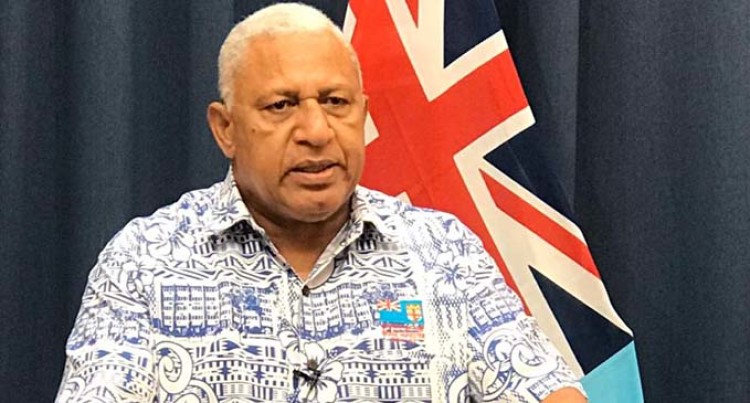The former Prime Minister Voreqe Bainimarama says Fiji’s vote at the United Nations on the war between Israel and Hamas demmonstrated our lack of compassion for those who have been displaced as a result of the conflict.
Bainimarama said that instead of taking sides in the conflict, government’s stand should have been to save the thousands of innocent lives, including those of women and children – Many of whom have lost everything.
In a video recording, the FijiFirst Party leader said the vote for peace and diplomatic resolutions, to end the suffering of innocent civilians and importantly to send critical humanitarian aid and supplies into the Gaza Strip would have been better.
“This was unfortunately what our current Government has not seen fit to do and voted against the resolution.”
The former Prime Minister said Fiji has always been a friend to all and enemy to none – And our stance has to be to keep the peace.
He added that unfortunately this is not the case now.
“Thankfully, most of the world has voted for the resolution for a humanitarian ceasefire and I thank them for this sensible action,” Bainimarama added.
Opposition Member of Parliament, Premila Kumar said Fiji has unnecessarily found itself at the centre of attention due to its decision not to support a humanitarian truce for Israeli’s and the Hamas militants at the United Nations Emergency Session.
Kumar said such a stance from the Coalition Government suggests that the government’s approach to international diplomacy, especially regarding conflicts, may not fully reflect the principles of humanitarianism and neutrality that are often associated with peacekeeping missions and international cooperation.
She said that the decision by Fiji, in practice, conveys a lack of empathy for the civilians affected by the conflict…sadly, the Government is promoting war and not peace is disheartening.
“At a regional level, the lack of a collective stance by the Pacific Islands Forum (PIF) members, a political body representing Pacific nations, is a significant factor in understanding the dynamics of Fiji’s decision not to support the humanitarian truce at the United Nations.”
Kumar highlighted the division was particularly evident in the case of Australia chose to abstain from the resolution, indicating a nuanced approach that it neither supports nor rejects the truce, while New Zealand supported the resolution.
She said this demonstrates that even with the regional body, member states had divergent views on the best course of action.
“The lack of a unified regional approach could potentially impact the effectiveness of a PIF as a collective diplomatic and political entity,” Kumar added.
The Office of the Prime Minister and the Ministry of Foreign Affairs has yet to responded to any of our questions sent to them earlier.
Fiji was joined by Austria, Croatia, Czechia, Guatemala, Hungary, Israel, the Marshall Islands, Micronesia, Papua New Guinea, Paraguay and Tonga in voting against the measure.
According to the United Nations Report, the resolution also condemned all violence against Palestinian and Israeli civilians.
However, notably, the resolution does not specifically condemn the attack earlier this month, or the surprise attack by Hamas, or mention Hamas at all.
There were several amendments that asked for Israel and Hamas to be named in the resolution that failed to get enough support.
It calls for the ‘immediate and unconditional release’ of all civilians being held captive.
Hamas took more than 200 people hostage during its attack earlier this month.
The resolution is the first formal UN response to the Hamas attacks on Israel and Israel’s counteroffensive.
Several other measures by the UN Security Council have failed to pass or have been vetoed by the U. S, Russia or China.
SOURCE: FIJI LIVE/PACNEWS














